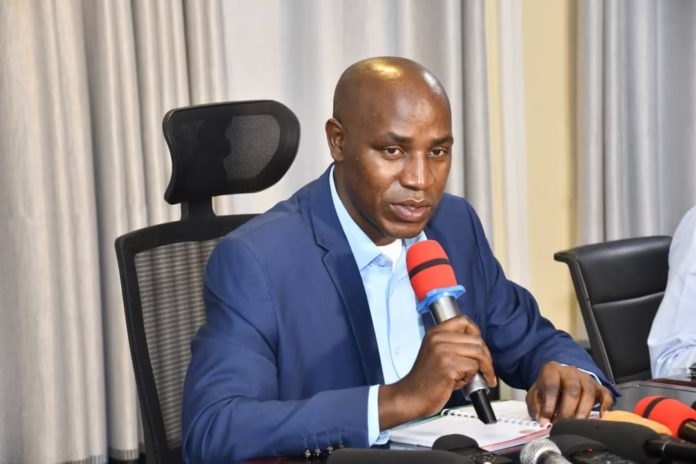BUJUMBURA,(Burundi Times) — Burundian authorities have launched a nationwide crackdown on price speculation and cross-border smuggling, warning of arrests and asset seizures for those who violate trade and market regulations.
The directive, issued Thursday by Interior Minister Martin Niteretse during a security meeting in Muyinga, took immediate effect. Officials said the move is aimed at stabilizing the cost of essential goods and curbing illicit trade, particularly along the eastern border with Tanzania.
“Anyone engaged in speculation on consumer products will be arrested, and their goods will be seized and auctioned for the benefit of the public treasury,” said Niteretse. “Local administrators or police officers who fail to report these acts will be considered complicit and prosecuted.”
The announcement comes amid growing frustration among Burundians over rising living costs. According to market observers, prices for basic food items such as rice, beans, and cooking oil have surged in recent months. Watchdog group OLUCOME reported earlier this year that prices for more than 30 key products had doubled between April and November 2024.
In Bujumbura, the price of rice has climbed from 4,800 FBu per kilogram to as high as 6,000 FBu, while beans and peas have seen similar spikes.
Niteretse also addressed the issue of illegal exports, citing the smuggling of beans, maize, coffee, and minerals to neighboring Tanzania. He warned that officials in border areas who fail to prevent such activity would face “exemplary sanctions.”
Although the overall security situation in the east was described as “generally stable,” local police officials reported ongoing challenges, including cross-border disputes, killings tied to land conflicts, and cases of gender-based violence. Officials also cited inadequate resources and poor infrastructure as obstacles to effective policing.
The minister called for improved coordination between security forces and local leaders, especially in response to violence linked to witchcraft accusations, which have led to several murders in rural areas.
He further ordered a ban on ligalas, informal groups of idle youth often blamed for petty crime urging local authorities to engage them in community service and development activities.
“These efforts are part of the broader reforms under Burundi’s Vision 2040–2060,” said Niteretse. “Security forces must constantly ask themselves how they can better serve the public.”
The meeting in Muyinga gathered police and administrative officials from provinces including Cankuzo, Ruyigi, and Kirundo as part of a wider effort to assess regional challenges and strengthen rapid-response capabilities.



